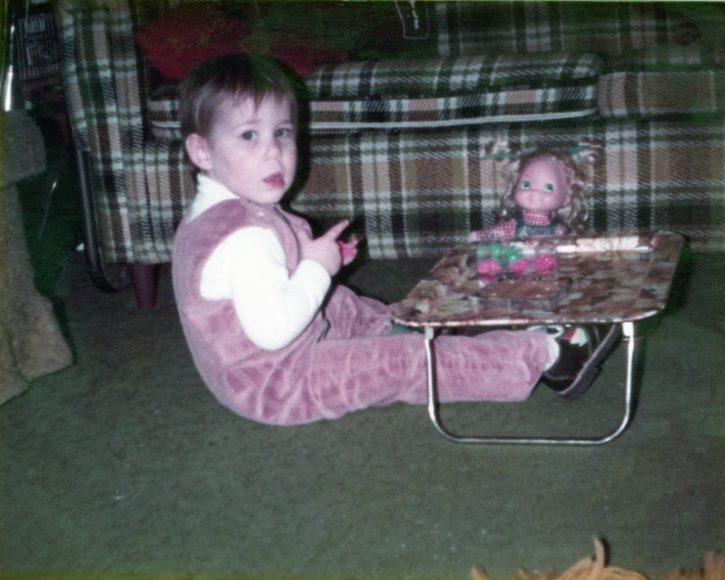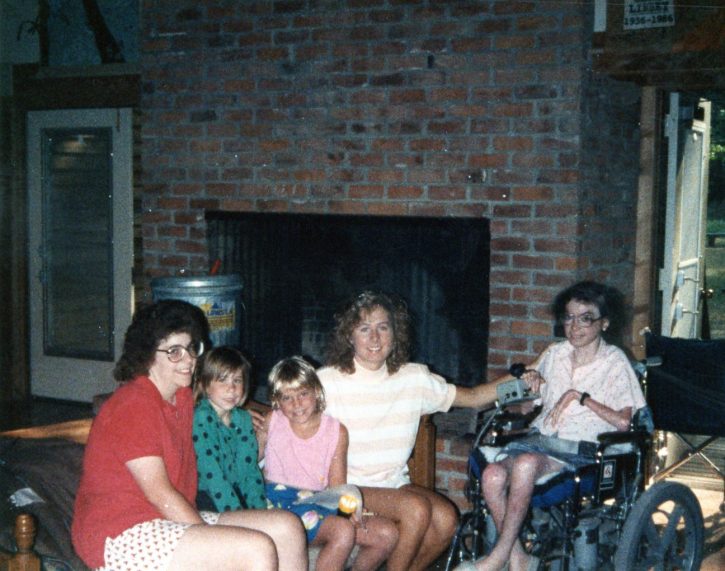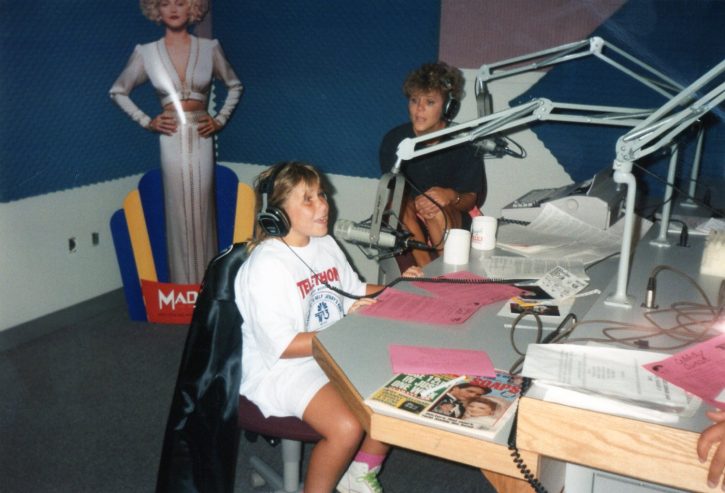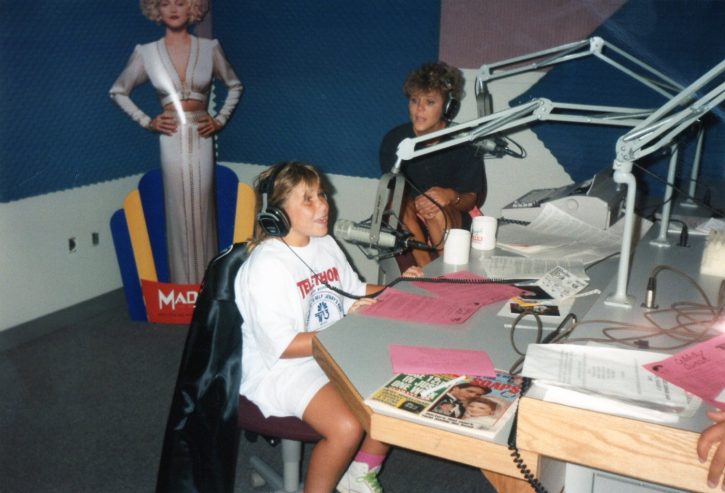As we have seen in many other individualized disabled communities, parents of kids with SMA tend to have little understanding of the lives that adults with SMA lead. For years, those of us with SMA have had to listen to parents of kids with SMA attempting to educate us about a disability we’ve lived with, sometimes longer than these parents have even been alive. At the same time, we have been silenced and pressed to the back bedroom, in favor of parents taking the mic to “fight for a cure.”
We won’t even get into cure mentality (check out my post about that here), or individual feelings about cure and treatment, as that could fill several more blog posts with the amount of info about that, or the fact that some of us don’t believe cures are possible. Treatment options, yes, and eradicating disability from future generations – but curing those who have lived with SMA for years? It’s more complicated than “ta da! You’re cured in a way that it seems like you never had SMA to begin with.” Let’s just focus on how much we can actually help you because when our needs are met, your needs as parents of kids with SMA are also met.
We understand that parents are introduced to the SMA community often in a jarring way when they are told their children will have no future and probably die before they reach adulthood. That was the prognosis back when we were children, and some doctors continue to give that prognosis today. However, research for SMA has come a long way, and with advancing medical treatments and other increases in medical care, many of us are living well into adulthood. It’s not fair that you have to learn about SMA this way, and we are angry that doctors tell you in such a horrible and horrific way. We want to change that and we believe we can help.

We want to use our stories of survival to help you see that your children can have a future as well. A lot more of us are growing up, going to school, getting married, having children. All of the things doctors told you would not be possible for those of us with SMA is happening – and not just for those of us with Type II or Type III. Those with the most severe types of SMA are finding independence in ways that doctors and hospitals told them they never would.
None of us have ever tried to ignore the fact that parents, our generation’s parents, in particular, were a large part of why we have medical treatments, but so were we. What SMA parents today don’t comprehend is that we were the guinea pigs for their children. A friend who grew up in the 70s talks about being in a care facility for nine years, recovering from spinal fusion surgery. In the 90s, I was in the hospital for 10 days and then had to have my surgeon come to my house for home visits as I recovered over several months.
Complete recovery took a few years, and my body is still recovering skin layers near my spinal scar almost 20 years later! Today, spinal fusion has come so much further, and that’s because of those of us who were the guinea pigs for these early treatments and interventions. My care time for surgery was cut down because of those with SMA who got spinal fusion in the 70s and 80s, and your children’s has been cut down because of my generation.
When I was a child in the 1980s, I went undiagnosed with asthma, further complicated by SMA, for four years. My male pediatrician kept diagnosing me as having bad colds and filling my body with cough syrup. I was in and out of the hospital with pneumonia multiple times. They would put you in these large machines and make you do all this testing. Let’s just say, I was shocked the first time I didn’t have to be put in a machine. Now they have a much smaller machine you can keep in your house to clear your lungs and give you breathing treatments. I had a home machine, but I also had to use the large machines at the hospital. I don’t see those kinds of machines anymore.
Adults with SMA have been paving the way for your children, often our entire lives. Some of us were used by organizations to raise money. Many of us grew up internalizing the message that we had no future and that we would die before reaching adulthood. This has led to suicidal ideation, and even some utilizing assisted suicide to end their lives. This has led to people sitting around waiting to die, and not moving on with their life. I’ve heard so many stories of people with SMA feeling like they’ve wasted time because they didn’t think they would make it into adulthood very far, only to discover they are still living after three, four, and even five decades!
Those of us living with SMA have been accused by SMA parents of not comprehending the great loss that comes with children with SMA dying, but so many of us have watched friends from camp with all forms of muscular dystrophy die. Some of us even experience survivors’ guilt – why are we the ones that got lucky enough to survive? When I was in my early 20s, I reached over 100 friends or acquaintances with neuromuscular disability who had died that I knew. That was when I stopped counting. I lost my best friend at 25. I can count the number of us left from my camp community on my hands. That’s campers from 13 years of camp, gone. The loss in our community runs deep and we feel it is the ones left to remember.

SMA parents often also fail to recognize that SMA goes beyond medical care and needs. We’ve been accused of making things political. As disabled people, our lives are political whether we want them to be or not. Disabled people lack access to a lot of civil and human rights. Those with SMA have been on the frontlines fighting for legislation that helps all people with SMA – without MY disabled elders and ancestors – people who came before me, we wouldn’t have legislation like 504. We wouldn’t have the ADA. All of the legislation that benefits disabled people has largely been thanks to disabled activists fighting in Washington and their own communities, including individuals with SMA like Mike Volkman, Brandi Simmons (RIP), and so many more.
Many parents think our issues are only medical. They don’t realize that we face barriers to so many things and that the fight continues well beyond the household. We have to fight for access to housing (some parents may recognize this although some of us have had parents that have ignored our accessibility needs forcing us to live in back bedrooms in inaccessible houses), education (parents should understand this battle – it’s ongoing throughout all schooling), and against barriers to having a job, finding relationships, being able to do recreational activities without ableism, being a parent, receiving access to home and community-based services, fighting for independent living, and so much more!
I believe that parents in the SMA community don’t understand their role and that is a part of the problem. One of the tenants that I love about disability justice is that the most affected are the ones who lead. That means those of us with SMA, because we are the most impacted, need to be the ones leading the charge. Parents seem to think this means that we don’t want them to have a role in the community, but parents can have a supporting role. They need to support us and they need to make sure our voices get heard. They need to make sure their children’s voices get heard.
A lot of SMA parents like to say they are the “voice” of their disabled children, but you can’t be the voice of someone else. You can only be a liaison, hoping to represent the voice of that person. Even with disabilities where individuals cannot speak verbally – there are a million different ways to “speak” and these individuals have ways of making their intentions heard. I urge parents not to take their disabled children’s voices away.
Part of the problem is that even as recently as today, disabled kids, especially those with severe physical disabilities like SMA, have remained segregated. These individuals do not have any voice that anyone is listening to, and in an ableist society parents have often had to take the charge since no one would listen to disabled people – but years ago those with SMA who could grab the microphone did, and what they said was that parents needed to let us speak. Our parents were not always getting what we needed or wanted correct. They were trying so hard, but we had needs that were not being met.
Some SMA parents also think they can love away way ableism, but we live in a world not designed for disabled people. You can’t love away way hatred, mistreatment, and the idea that your child is less just because they have a disability. Instead, SMA parents would benefit from listening to the experiences of ableism by adults that have SMA. That’s the only way to prevent future generations from having to endure the ableism we have.
SMA parents should not feel guilty. I know that this is something that really makes it hard for some parents because the medical institution doesn’t help in not placing blame on parents. I’ve seen many parents of kids with neuromuscular disabilities that feel guilt over believing they gave their children SMA. You can’t help your genetics, and nobody is blaming you. If they are, they are wrong. Genetics are genetics, and we are born how we are born. Some of us just happened to be disabled and that’s no one’s fault. Those of us with SMA support parents in not having to feel like they are to blame for this because it’s not anyone’s fault.

Finally, we recognize it’s hard for SMA parents to find pride in something they see as detrimental to their children, but not all of us see our disability as detrimental. For me, I grew up in a harmful household and I believe I would be a horrible person had I not had SMA. I believe I’m so much more hard-working, caring, compassionate, and stubborn because of my SMA. I wouldn’t change who I am for the world, and I would never want to be born without SMA. I am who I am, and every part of me contributes to that. Even my SMA.
Not everybody with SMA feels this way. Sure, there are times I get frustrated with my body, but the greater strides we see in combating ableism and offering accessibility, the greater and easier my life becomes. No matter how someone who has SMA feels about having it is okay. But we must recognize that not everybody sees it as something life-ruining. Hearing about how everybody wants to eradicate SMA means that they want to eradicate people like us. Without SMA I wouldn’t exist. I wouldn’t be me.
At the end of the day, I hope that SMA parents will realize that they have a choice to be in the SMA community. They could ignore SMA. They could ignore their children. They could move on with their lives. That’s what my parent did. Once I was out of their life, SMA was out of their life. For me, SMA will always be here. It’s never going away. Those of us with SMA deserve to be at the forefront of discussions about this disability. I’m grateful for the parents who embrace their children with SMA. I recognize not all parents are like this, but if it’s enough of a problem that there are enough parents who refuse to listen to us that I felt compelled to write this post.
So many of us with SMA have been silenced by SMA parents for so long. It’s time for us to be allowed to share our perspectives because we have a front-row seat at life with SMA. Please step back and let your children take the mic. We recognize what you’ve done for your children and we recognize that society is not kind to you either. But the thing is, we are already fighting for you. While you don’t understand our issues with ableism or other things that affect disabled people in general, things that will affect your children and already do, we understand that our caregivers need so much more than they are given – more money or money at all to take care of us, respite options, health care for themselves, mental health support, home care support, and the ability to get out of poverty for those trapped in it.
Instead of arguing with us, support our fight. Our fight benefits you. Our fight benefits your children. Without equal access and protection, nothing will get better for any of us. Now is the time for us to lead the charge. Trust your children – us former kids with SMA. It’s time.
This is part of a series of articles by Dominick during #SMActionMonth. Check back throughout the month for more articles on life with SMA!


Comments